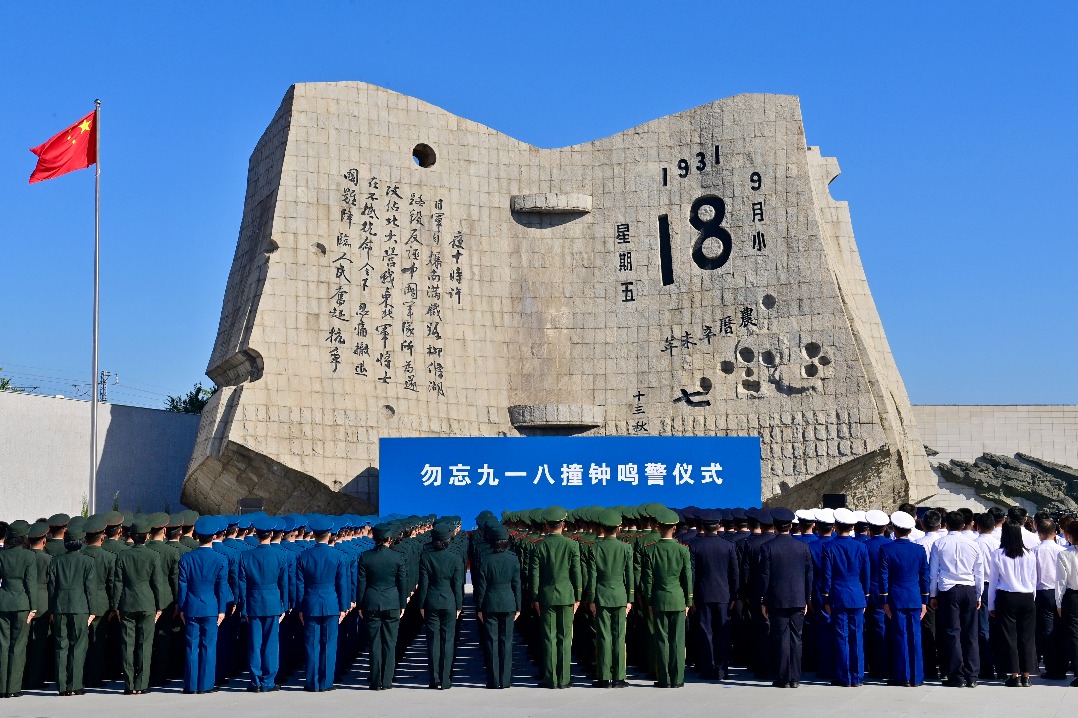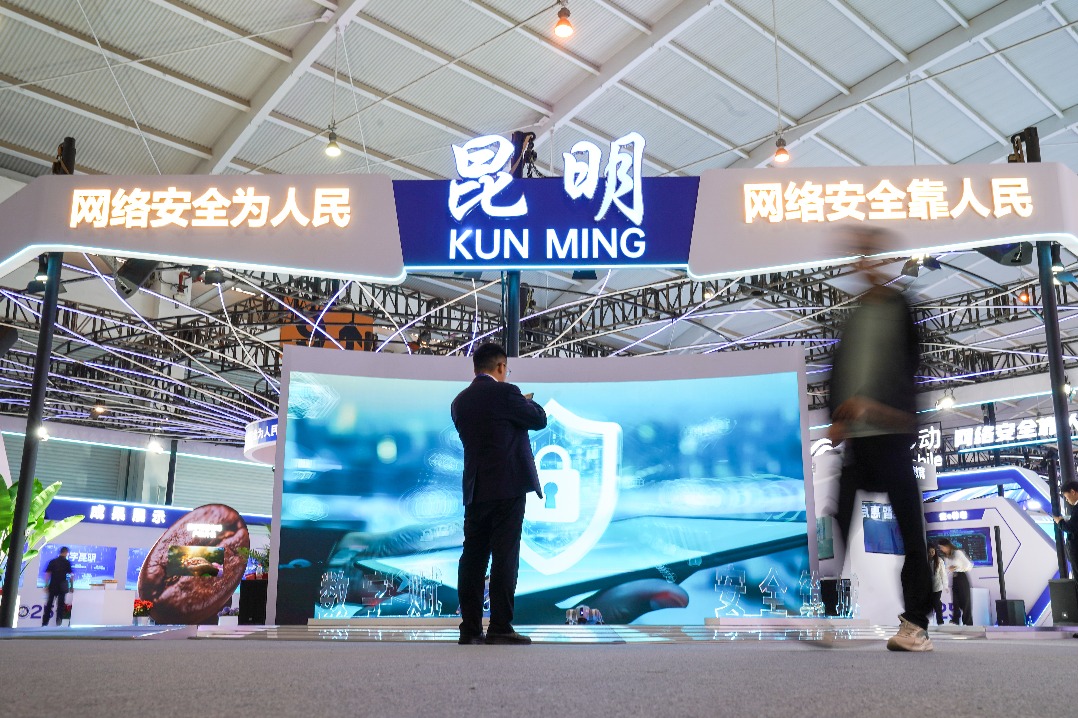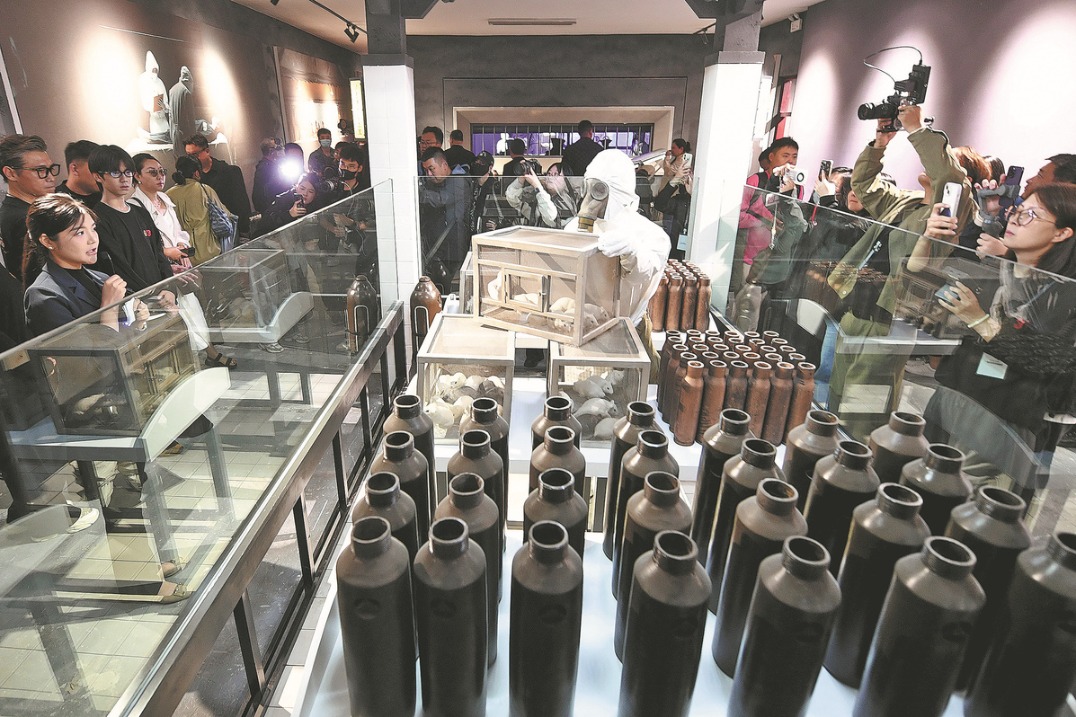Double the marks

| Customers wait for shopping at Marks and Spencer's new Shanghai store on the opening day. Below: The new flagship store at Golden Bell Plaza. Provided to China Daily |

British retailer aims for rapid expansion but limited to one city
Given a challenging economic environment and sluggish sales in its home market, British retailer Marks and Spencer Group PLC is moving faster to expand its presence on the Chinese mainland.
It took M&S China four years to open eight stores in the eastern region of the country. Now it has decided to open another eight in the next 12 months.
M&S has been trying to leverage its international business, and Shanghai and the surrounding region, where all its stores are located, is still its focus.
"Different from India, the Chinese market has a lot of affluent people who are eager to buy the best in the world," says Pascal Martin, regional director for Asia at M&S. "For M&S, this is a great opportunity."
 |
In 2011, the business in Shanghai enjoyed double-digit growth that gave M&S China more confidence, although Beijing is not on M&S's agenda yet.
Martin says M&S will not expand blindly until everything is ready. M&S China will still focus on Shanghai and the cities around it for a long time.
After four years of learning, the British retailer, with its 128 years of history, is trying to gain Chinese consumers' heart.
On June 1 M&S opened a new flagship store at Golden Bell Plaza in one of Shanghai's main shopping streets, Huaihai Road, with 4,500 square meters of sales space over two floors.
Compared with the first flagship store in Nanjing West Road, Shanghai's equivalent of London's Oxford Street, the new store claims to offer a greater range of M&S fashion lines, and more than 280 exclusive products, as well as its quality food and wines and an in-store bakery.
M&S entered the Chinese market in 2008, just in time for the worst of the global financial crisis. However, the first store was criticized for problems such as oversized clothes for Chinese consumers, outmoded fashion design and a limited selection of food.
James Roy, senior analyst with China Market Research Group based in Shanghai, says M&S only brought a basic offering to Shanghai at the beginning, which obviously did not work.
It was almost two years before M&S opened another store in Shanghai, and most of its stores in China have yet to make a profit.
"When you start in a new market, making mistakes is unavoidable. However, we learn, correct and improve," Martin says.
"You need to look at the Chinese market with a long- term perspective," he adds. "China is really a top priority of M&S, and even if we have to slow down a little, we are not going to take that as a reason for not continuing to invest."
With the opening of the new Shanghai store, M&S China is trying to bring in "the latest, most stylish, fashionable products", which can be delivered from its British market every week. Stephen Rayfield, managing director for M&S China, says the stores in Shanghai will match the stores in developed countries in terms of quantity and quality.
The day the new store opened, M&S put several models on a touring bus to display new British fashion in an effort to attract younger customers. The store's typical customers are said to average 35 years old.
China is the second-largest market in the fashion and apparel industry, and the 18 to 34 age group are the biggest consumers, says Guiherme Faria, general manager at Novo Mania, an annual fashion trade exhibition for international retail brands in China.
Faria says more than 200 million Chinese were born in the 1980s who want to buy fashionable products and are interested in international brands.
But market analysts believe M&S still needs to accustom Chinese customers to its one-brand concept, which represents its core value and competitiveness. Most of China's popular department stores have a wide range of brands, which may appear to give customers more choice.
"When talking about shopping, most Chinese consumers want to select from a range of brands instead of one typical brand," says Chen Xiao, CEO of ihaveu.com, a Beijing-based e-commerce website selling luxury products.
"One-brand concept is our strategy and we are not going to change it," Martin says. "We have a high standard in different products, such as wine. We select wine providers, and customers can close their eyes and totally trust us."
The competition now is also more intense than when M&S entered the Chinese market. Fast-fashion brand companies such as H&M of Sweden, Zara of Spain and Uniqlo of Japan are expanding aggressively in China.
H&M, which started its business in China in 2007, has about 85 stores, and is now targeting at customers in smaller cities. Zara and Uniqlo have more than 130 stores.
Local companies too, such as Shanghai Metersbonwe Fashion & Accessories Co, are becoming more competitive. The company has 73 stores across the country, according to its website.
Compared with the M&S clothing range, those well-established brands in China are better priced. Gao Xuan, a 24-year-old customer visiting the new Shanghai store, says that prices of men's clothing are a little higher than he expected, but M&S food and beverages are good.
"M&S's target consumers are China's rising middle class, but the price of M&S is not cheap, and not expensive. They are in the middle, and no one wants to be in the middle," says China Market Research's Roy.
He adds that the middle class in China is looking for luxury and style at the high end or better value at the cheaper end, and M&S is falling between two stools.
Despite boasting of "truly international and multi-channel retail", M&S is not moving that fast in China's online market either. Its official website for the Chinese mainland only has an online exhibition function.
"In Europe, M&S is the leader in terms of e-commerce, and we are very interested in this market," Martin says. "However, it is still too early to talk about online expansion. We are focusing on long-term play instead of short-term interest."
suzhou@chinadaily.com.cn
(China Daily 06/15/2012 page19)
Today's Top News
- China leads the world in the number of people engaged in R&D: official
- Anti-fraud alliance proposed
- Forum highlights major-country ties
- Expo opens as China-ASEAN trade hits record high
- A tribute to China's resilience 80 years on
- Xi: V-Day events bring positive energy































